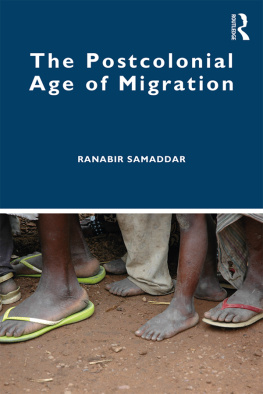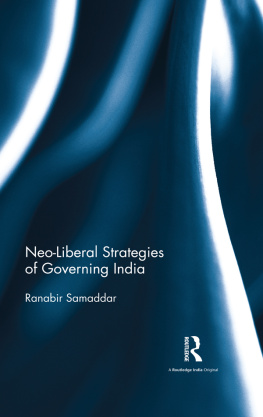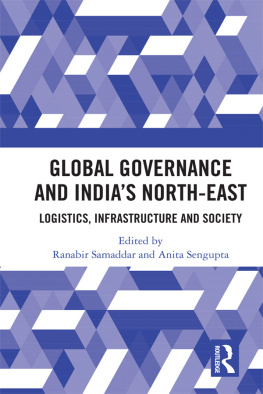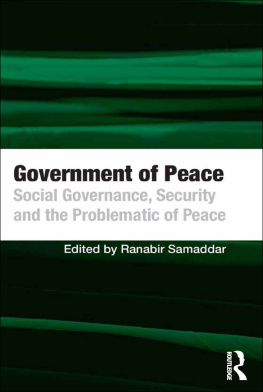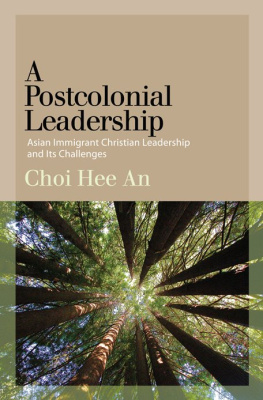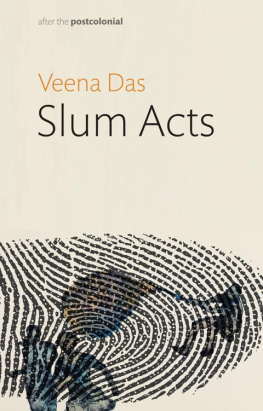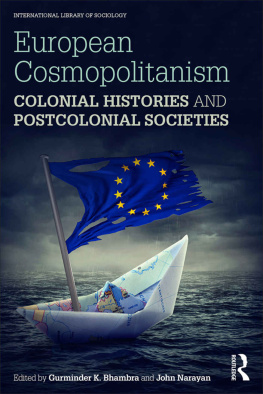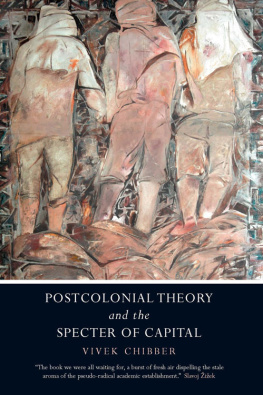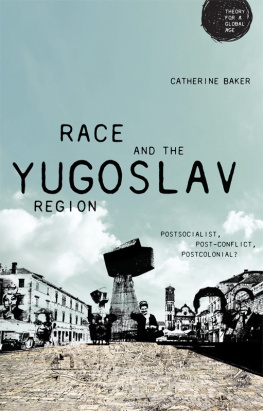The Postcolonial Age of Migration
This book critically examines the question of migration that appears at the intersection of global neo-liberal transformation, postcolonial politics, and economy. It analyses the specific ways in which colonial relations are produced and reproduced in global migratory flows and their consequences for labour, human rights, and social justice. The postcolonial age of migration not only indicates a geopolitical and geo-economic division of the globe between countries of the North and those of the South marked by massive and mixed population flows from the latter to the former, but also the production of these relations within and among the countries of the North. The book discusses issues such as transborder flows among countries of the South; migratory movements of the internally displaced; growing statelessness leading to forced migration; border violence; refugees of partitions; customary and local practices of care and protection; population policies and migration management (both emigration and immigration); the protracted nature of displacement; labour flows and immigrant labour; and the relationships between globalisation, nationalism, citizenship, and migration in postcolonial regions. It also traces colonial and postcolonial histories of migration and justice to bear on the present understanding of local experiences of migration as well as global social transformations while highlighting the limits of the fundamental tenets of humanitarianism (protection, assistance, security, responsibility), which impact the political and economic rights of vast sections of moving populations.
Topical and an important intervention in contemporary global migration and refugee studies, the book offers new sources, interpretations, and analyses in understanding postcolonial migration. It will be useful to scholars and researchers of migration studies, refugee studies, border studies, political studies, political sociology, international relations, human rights and law, human geography, international politics, and political economy. It will also interest policymakers, legal practitioners, nongovernmental organisations, and activists.
Ranabir Samaddar is Distinguished Chair in Migration and Forced Migration Studies, Calcutta Research Group, Kolkata, India. He belongs to the critical school of thinking and is considered as one of the foremost theorists in migration and forced migration studies. His writings on migration, forms of labour, urbanisation, and political struggles have signalled a new turn in postcolonial thinking. Among his influential works is The Marginal Nation: Transborder Migration from Bangladesh to West Bengal (1999). His recent works are Karl Marx and the Postcolonial Age (2018), The Crisis of 1974: Railway Strike and the Rank and File (2016), and Beyond Kolkata: Rajarhat and the Dystopia of Urban Imagination (2014, co-authored).
The Postcolonial Age of Migration
Ranabir Samaddar
First published 2020
by Routledge
2 Park Square, Milton Park, Abingdon, Oxon OX14 4RN
and by Routledge
52 Vanderbilt Avenue, New York, NY 10017
Routledge is an imprint of the Taylor & Francis Group, an informa business
2020 Ranabir Samaddar
The right of Ranabir Samaddar to be identified as author of this work has been asserted by him in accordance with sections 77 and 78 of the Copyright, Designs and Patents Act 1988.
All rights reserved. No part of this book may be reprinted or reproduced or utilised in any form or by any electronic, mechanical, or other means, now known or hereafter invented, including photocopying and recording, or in any information storage or retrieval system, without permission in writing from the publishers.
Trademark notice: Product or corporate names may be trademarks or registered trademarks, and are used only for identification and explanation without intent to infringe.
British Library Cataloguing-in-Publication Data
A catalogue record for this book is available from the British Library
Library of Congress Cataloging-in-Publication Data
A catalog record for this book has been requested
ISBN: 978-0-367-34256-2 (hbk)
ISBN: 978-0-367-34257-9 (pbk)
ISBN: 978-0-429-32469-7 (ebk)
Typeset in Bembo
by Apex CoVantage, LLC
For a long time, and to a large extent still today, refugees, migrants, internally displaced population groups, and illegally wandering bands of labour remained on the borders of several disciplines and were treated according to the norms of professional knowledge of care, protection, and above all population management and security. However, the massive population movements world over, in various forms overflowing their categorical boundaries (such as refugees, asylum seekers, jobseekers, migrants, seasonal and irregular immigrants, trafficked persons, etc.), have breached the structures of governance and rule, as well as our knowledge. After 1919 with the establishment of the League of Nations and certainly after 1951 when the Refugee Convention was born, forced population movements were perceived less in terms of crisis. They did not indicate any crisis. Admittedly they were exceptional and had to be taken care of, while the regular and normal conduct of managing populations of nations could continue. Labour force was steady and would reproduce itself with reasonable certainty.
Then the crisis began with, on one hand technological change and change in the dynamics of accumulation, and on the other hand the number of legally and illegally moving people phenomenally increasing, throwing into the process the stability policies of governments in disarray. Various interventions and decisions to monitor and control the flows began in earnest. The first condition for the success of these new strategies was to isolate the phenomenon of massive and mixed migration, treat it as a serious abnormal phenomenon, and disconnect the power to protect and manage the migrants of the postcolonial world from the general effects of the neo-liberal transformation sweeping the globe. This is the postcolonial moment in the history of migration, which appears at the juncture where neo-liberal transformation and postcolonial politics and economy intersect. The current age of migration can be read historically only in this way. An understanding of this intersection is at the heart of this book.
When the great asylum structures were built after the formation of the League and then the United Nations, they were justified by a notion of a marvellous harmony between liberal democracy, welfare capitalism, the institution of citizenship, and the duty and responsibility to protect victims of forced migration. It was inevitable that the said harmony would not last long. Various asymmetries originating from the intersection of the two global structures of existence the neo-liberal and the postcolonial have put paid to the post-war history of welfare and protection. With this begins the postcolonial age of migration.
The moment is understood by many as crisis a crisis in population and security policies of various countries, predominantly of Europe and the United States, as well as a crisis of perception. At the same time there is no doubt that the recent worldwide interest in migration and refugee flows has much to do with a series of events, known as the European refugee crisis, the American caravan crisis, the Rohingya crisis, and the two recent global compacts on refugees and migrants. This reawakened interest is only to be welcomed as this would now encourage and allow more investigation into global migration flows including massive internal displacements in various countries. Displacements of people due to persecution, developmental and environmental disasters, and above all neocolonial wars and fratricidal conflicts, are creating thousands of migrants as fodder for labour in the capitalist world. Living labour is turning virtually dead in the process. Yet we must not, however, use cataclysmic events as pretext to avoid investigations of longer trends. Any investigation into the ways in which the global economy uses the migrants as labour and the structure of global governance manages to keep the system running will open our eyes to the deep fault line in the landscape of migration. The origin, nature, and reproduction of the population flows makes our age irrefutably a postcolonial age of migration. With the transition to the neo-liberal mode of global accumulation of capital, the strategy of uprooting people has only exacerbated, and constitutes, to a significant extent the politics of our time. In the process it has thrown institutions like citizenship into disarray. Foundations of democratic order have been put into question. Modes of labour supply have to be continuously reorganised. For all these reasons this is a global age of migration. At the same time it is so because postcolonial realities of history, politics, and economy are profoundly shaping the global.


